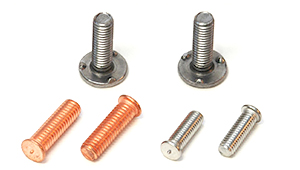
Selecting the right welding accessories can seem overwhelming, especially for beginners in the field. Every project has unique requirements, making the choice both critical and challenging. With so many options available, understanding the basics is essential. The quality of materials used can significantly impact the durability of the end product.
Weld studs are crucial in various industries, offering strength and reliability in construction. Choosing the right ones requires careful attention to your project’s needs. This guide will walk you through essential considerations when selecting the perfect welding components.
Understand the Purpose of the Application
Before deciding on any components, understand the project’s goals and requirements. Different projects require different welding solutions depending on their specific design and functionality. For structural tasks, the selected options must handle stress and provide high durability. For decorative or light-duty tasks, look for flexibility and ease of installation.
Always ensure that the chosen materials effectively meet your project’s demands. Think about the project’s working conditions, such as exposure to heat or moisture. This step helps narrow down options that align with environmental challenges and ensures that the final structure remains safe and long-lasting.
Know the Different Types of Welded Fasteners
Familiarize yourself with the varieties of welded fasteners available for industrial and home projects. There are threaded, unthreaded, and specialty options designed for unique situations. Each type serves distinct purposes, so understanding their functions is essential. Threaded options provide firm holds for assembling parts, while unthreaded ones focus on sheer strength.
Specialty versions often address niche needs, like insulation or electrical connectivity. When selecting fasteners, consider their material properties and whether they align with your base material. Matching compatibility ensures secure bonds and prevents unexpected complications during welding.
Check Material Compatibility and Strength
The compatibility between base materials and fasteners determines the success of any welding task. Choose materials with similar properties to avoid potential welding failures. For instance, steel fasteners work best with steel surfaces, while aluminum calls for matching components. Matching materials also ensures uniform expansion and contraction under temperature changes. Evaluate the strength and load-bearing capacity.
Assess the Size and Dimensions
Every project demands specific sizes and dimensions for welded fasteners. Ensure your chosen components fit precisely within the design plan. Oversized or undersized pieces can compromise structural integrity or cause misalignment. Manufacturers typically provide size charts to guide you during the selection process. Consulting these resources saves time and eliminates guesswork.
Consider Environmental Conditions
Projects often face environmental challenges that impact their longevity and performance. Heat, moisture, and chemical exposure can affect how materials respond over time. When choosing welded fasteners, consider their resistance to rust, corrosion, and temperature fluctuations. Due to their anti-corrosive properties, stainless steel options work well for moisture-prone environments.
In contrast, projects in high-heat areas may require heat-resistant alloys. Identifying the environmental conditions ensures that your final choice will stand the test of time and contribute to the safety and reliability of the entire project.
Seek Professional Guidance When Needed
Working with a wide range of available options can sometimes feel overwhelming. Consulting with professionals ensures accurate decisions tailored to your specific project. Experts can recommend the most suitable fasteners based on their expertise and experience. This guidance saves time and prevents costly mistakes.
It also helps you understand proper installation techniques and best practices. Whether you’re a beginner or an experienced professional, seeking advice is always beneficial. It equips you with the knowledge to confidently tackle even the most complex projects.
Weld studs are essential for projects that require strong and durable welded connections. Choosing the right components ensures long-term reliability and superior performance in any task. Start by understanding the project’s purpose and selecting materials that suit the application. A well-informed decision always guarantees better results, cost-efficiency, and project success.